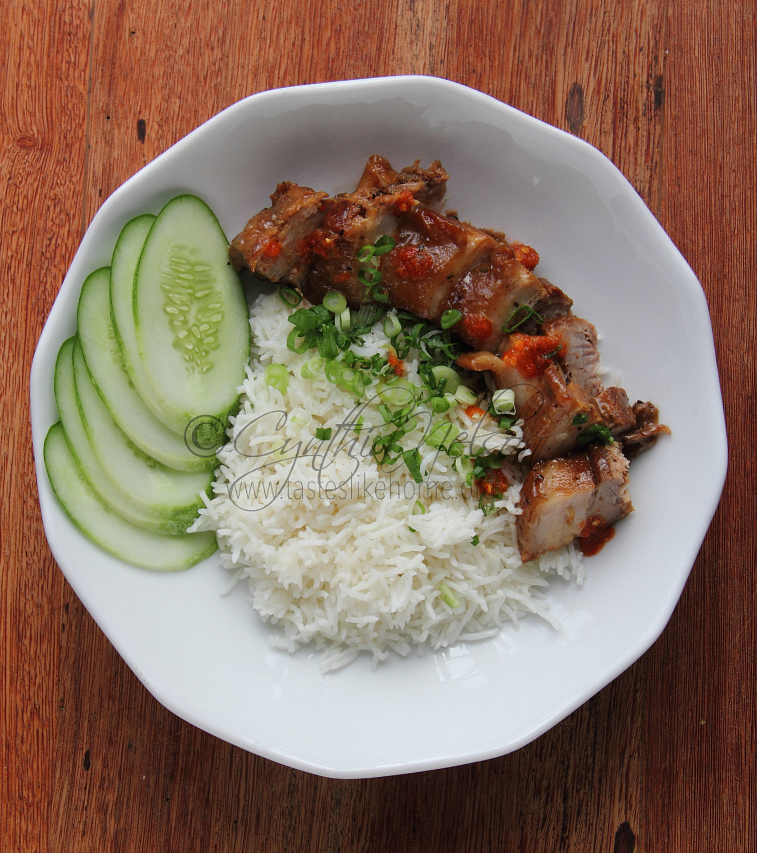 Social media provides multiple platforms for people to cook and share their food. Many of us over the years have expanded our palettes, cooking repertoire, and explored cuisines, all without leaving our homes, except perhaps when we step out to shop for ingredients. For many of us, it has, and continues to be a wonderful journey and learning experience. For others, it has been a time to criticise, embarrass, and alienate.
Social media provides multiple platforms for people to cook and share their food. Many of us over the years have expanded our palettes, cooking repertoire, and explored cuisines, all without leaving our homes, except perhaps when we step out to shop for ingredients. For many of us, it has, and continues to be a wonderful journey and learning experience. For others, it has been a time to criticise, embarrass, and alienate.
There is a group on a popular social media platform called, Guyanese Cuisine – Dishes, Recipes, Food and Drink. I am not a member of this group, however, posts from the group show up in my newsfeed because some of my ‘friends’ are members of the group (and their posts show up in my newsfeed). Last week, a member posted a dish she had made. It was one of those everyday dishes, for which there are many versions and interpretations. I do not know about you, but my everyday cooking is about what I have available in the house. Sometimes, it is not really a dish that can be identified by a name or title, it is simply something that I ‘throw together’. There is no recipe, no set list of ingredients, I eyeball everything and cook based on instinct. It is that kind of approach to cooking that the person took who posted that day in the group. One of the administrators (it was indicated at the top of the post), responded to the person who posted saying: This group was not created to showcase talent or showcase dishes, but to edify, help and support each other. You have to post a recipe with each dish and if you can’t do that, this is not the group for you; find another group.
A person commenting on the thread explained that she has been cooking since the age of 10 and that she only knows the right amounts of any ingredient by eyeballing them. She and many others with similar stories decided that they were going to leave the group given the strict condition for participation. They explained that they do not have recipes or even know how to write recipes.
Later the same day, completely unrelated to the situation mentioned above, a friend of mine – Trinidadian – posted on her personal page that her mother eyeballs everything she cooks except when making a cake.
On that same thread a few of us shared our experiences of learning to cook from our mothers and other women in our families – by watching and seeing them eyeballing everything. One said that to make roti, her mother measures flour by the handful, salt and baking powder were measured in the palm of her hand. All of us could identify with “so much” (indicated by a finger or hand gesture), “a lil bit”, “a can-chee”, and “enough” among other phrases. I shared with my friends that when it came to measurements, I would wait until I went to Guyana or mommy came to Barbados, take the eyeballed amounts, and then measure to get precise amounts. For example, when I wanted to make mauby as close to my mom’s excellent mauby, she told me over the phone about taking pieces of bark and measuring them against various digits of my fingers. Now mauby bark not only comes in various lengths but there are pieces that are curled, and spread flat, so while I may have the length right (and you know that not everyone’s hands and fingers are the same size), how was I to know that I would not be using too much bark if it was curled, or less, if it was flat? A year later, when mommy visited, I had her eyeball-measure the bark for me which turned out to be half an ounce in weight. That’s how me and many others got precise measurements for recipes – by measuring all eyeballed amounts when we had access to all the folks in our lives that cook from instinct.
Here is a recipe, yet another friend received from her mother to make pastry for meat pies:
“Put enough flour. Salt to match flour. Add shortening, butter and yoghurt in some amount that seems reasonable.”
What is a recipe?
A recipe is essentially someone’s interpretation and understanding of a dish. It is based on individual taste; it is simply a guide. A recipe is someone’s way of making something. People cook based on their own knowledge, skill, and availability of ingredients; nothing is really cast in stone. All of it comes down to personal preference and taste; and taste as we all know (or should know), is relative and subjective. For example, do we tell someone who seasons their chicken with a masala-curry paste overnight and then cooks the curry the following day that they are wrong? Is it that we consider that process wrong because all we know or have been accustomed to is the masala-curry paste being cooked in hot oil first before adding the chicken? There are many other examples I can give but I don’t need to because you get the point.
Here’s the thing, Caribbean people (and others across the world), for centuries, and decades, have been cooking by instinct, by eyeballing ingredients, by using a know-how from constant practice. They measure, cook, and determine doneness by sight, sound, feel, touch, taste and smell.
There is nothing wrong in asking people, to post recipes, but you also have to be mindful of how people learnt to cook, and how they know cook. If you are truly saying that your purpose (as a group) is to edify, help and support each other, then why drive people away simply because they do not know how to do something, in this case – to measure and write a recipe?
Here are some facts:
● People have different levels of cooking skills and confidence.
● Cooking and sharing one’s food with people we invite to our home can be nerve-racking and intimidating, much less, to do so with the entire world. Some people feel comfortable posting on social media because it provides a certain anonymity.
● Recipe-writing is a skill. And if you or a group is so insistent on recipes being written, perhaps offer to guide and assist.
In the case of the Guyanese Cuisine – Dishes, Recipes, Food and Drink, it is clearly stated that one of the purposes of the group is to edify. Well you do not do that by bullying, embarrassing, and chasing people.
Cynthia
cynthia@tasteslikehome.org






